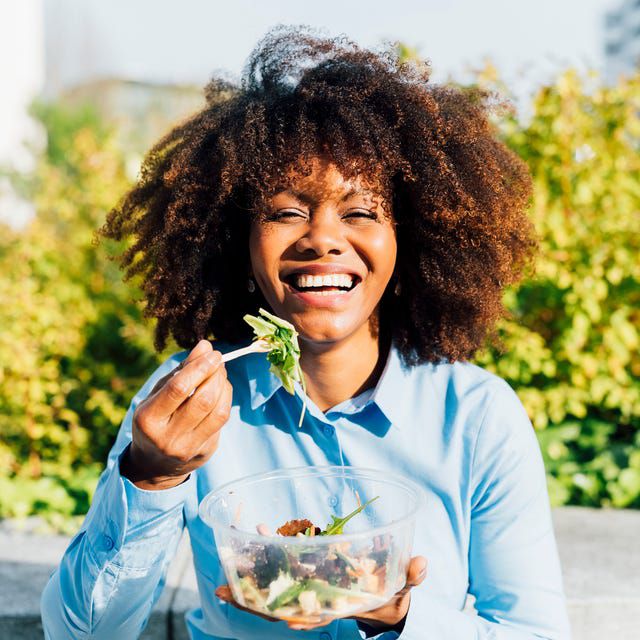ARTICLES
The 10 Best Foods and Vitamins to Support Eye Health, According to Experts
The 10 Best Foods and Vitamins to Support Eye Health, According to Experts

Good vision is something many of us take for granted—until it begins to decline. But maintaining healthy eyes goes beyond just annual checkups and corrective lenses. The foods you eat every day play a significant role in protecting your eyes from age-related conditions and supporting optimal function as you get older.
Whether you’re looking to prevent vision loss, combat dryness, or reduce your risk of degenerative diseases like macular degeneration, adding the right nutrients to your diet is key. Here’s a science-backed guide to the best foods and vitamins for your eyes—recommended by nutritionists and eye health experts.
The eyes are made up of delicate tissues and complex systems that rely heavily on specific nutrients for maintenance, repair, and protection. From the tear-producing glands in your eyelids to the retina at the back of the eye, different parts of the visual system require vitamins, minerals, antioxidants, and healthy fats to function optimally.
One major threat to eye health is oxidative stress caused by free radicals, which can damage cells and contribute to conditions like macular degeneration and cataracts. Fortunately, antioxidants and other nutrients in whole foods can neutralize these harmful compounds and protect your vision over time.
Top 10 Foods for Eye Health
1. Green Tea
Rich in powerful antioxidants called catechins (especially EGCG), green tea offers protective benefits against common eye conditions like glaucoma and cataracts. It also has anti-inflammatory properties that may relieve symptoms of dry eye and reduce long-term irritation.
2. Eggs
Egg yolks contain lutein and zeaxanthin, two vital antioxidants that accumulate in the retina and protect it from UV damage and oxidative stress. These nutrients also help improve visual sharpness and reduce the risk of age-related macular degeneration (AMD). Just 2–4 eggs per week can significantly lower your risk of AMD.
3. Carrots (and Other Orange Vegetables)
Carrots are rich in beta-carotene, which the body converts into vitamin A—a critical nutrient for night vision and overall eye surface health. Other beta-carotene-rich options include sweet potatoes, pumpkin, and papaya. These foods also support the production of rhodopsin, a pigment in the retina needed for seeing in low light.
4. Citrus Fruits
Oranges, lemons, limes, and grapefruit are loaded with vitamin C, a potent antioxidant that helps protect eye tissues from UV damage, supports collagen production in the cornea, and strengthens blood vessels in the retina. Consistent intake may reduce your risk of cataracts and age-related deterioration.
5. Turmeric
Turmeric’s active compound, curcumin, offers both anti-inflammatory and antioxidant benefits. It supports tear production and may help soothe chronic dry eye symptoms. Studies also suggest curcumin plays a role in the prevention and treatment of conditions like cataracts and glaucoma.
6. Fatty Fish (Salmon, Tuna, Sardines)
Cold-water fish are rich in omega-3 fatty acids, which are essential for healthy retinal function and tear film stability. Omega-3s help reduce inflammation, support tear production, and may slow the progression of dry eye disease. For a bonus nutrient boost, pair seafood with seaweed, which contains vitamins A, C, and E, along with zinc.
7. Bell Peppers
These vibrant vegetables are high in beta-carotene, as well as vitamins C, E, and B6. Vitamin C aids tissue repair, while B6 supports the optic nerve. Some evidence also suggests vitamin K in peppers may help regulate eye pressure—a factor in preventing glaucoma.
8. Nuts and Seeds
Almonds, hazelnuts, sunflower seeds, and peanuts are great sources of vitamin E, a fat-soluble antioxidant that protects cells in the eyes from oxidative stress. Regular intake may help slow the development of cataracts and prevent the breakdown of retinal tissue over time.
9. Leafy Greens and Cruciferous Vegetables
Kale, spinach, broccoli, and Brussels sprouts are loaded with lutein, zeaxanthin, and beta-carotene—often in even higher amounts than carrots. These phytonutrients have been shown to protect against UV-related eye damage and may delay the onset of cataracts by up to 20%.
10. Oysters (and Other Zinc-Rich Foods)
Zinc plays a critical role in retinal health and helps transport vitamin A from the liver to the eyes. Just one oyster provides nearly the entire daily recommended intake of zinc. Other good sources include pumpkin seeds, chickpeas, lean meat, and poultry.
Should You Take Supplements for Eye Health?
In some cases, supplements can be beneficial—particularly if you don’t regularly consume key nutrients through your diet. Studies like the Age-Related Eye Disease Study (AREDS) and AREDS2 have shown that specific supplement formulas containing antioxidants, zinc, lutein, and zeaxanthin may slow the progression of AMD in at-risk individuals.
Omega-3 supplements may also help improve symptoms of dry eye in people who don’t eat enough fatty fish. That said, experts agree that a balanced diet rich in colorful fruits, vegetables, and healthy fats is often sufficient for most healthy adults. Before starting any new supplement regimen, always consult your eye doctor or healthcare provider.
Discover more from 9jaPolyTv
Subscribe to get the latest posts sent to your email.

 EDUCATION10 hours ago
EDUCATION10 hours agoNYSC Hope Rises for HND Graduates with ND Part-Time Background as Polytechnics Begin Compliance

 ASUP23 hours ago
ASUP23 hours agoASUP orders immediate shutdown of all polytechnics over eight-month salary arrears

 UNIVERSITY NEWS23 hours ago
UNIVERSITY NEWS23 hours agoNUC urges varsities, govt to invest more in digital infrastructure

 EDUCATION23 hours ago
EDUCATION23 hours agoApply Now: Sahara Impact Fund Offers Up to $30,000 in Grants and Business Support for African Innovators

 ARTICLES8 hours ago
ARTICLES8 hours agoIs Intermittent Fasting Safe for People with Hypertension? What You Need to Know Before Trying ItW

 EDUCATION23 hours ago
EDUCATION23 hours ago“I Studied Six Hours Daily After JAMB Lessons” — 2025 UTME Top Scorer, Chinedu Okeke Shares His Success Journey

 EDUCATION1 hour ago
EDUCATION1 hour agoFG unveils ₦10m support fund for tertiary institution staff

 ARTICLES8 hours ago
ARTICLES8 hours agoDaily Routine for Someone with High Blood Pressure: Simple Habits That Actually Work




































